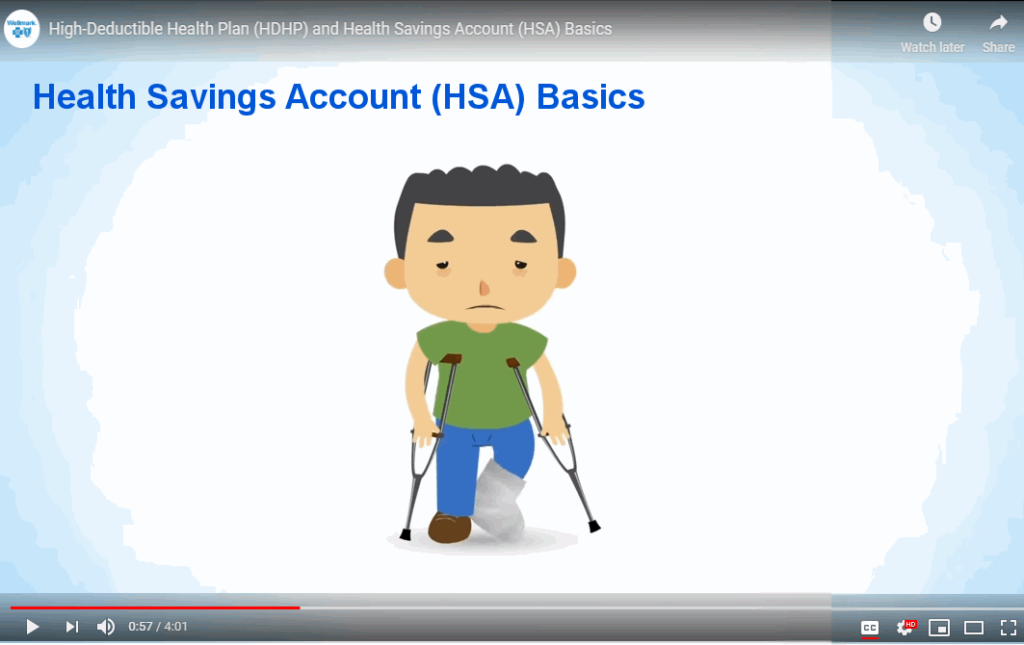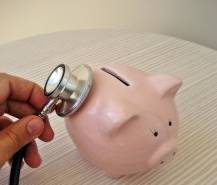It is no secret that the cost of health care continues to rise. You might feel that it is almost out of reach of the average American family to afford quality medical care when they need it the most. Thankfully, there are certain mechanisms that you can put into place to save you money. One of those involves a Health Savings Account or “HSA”. This is a way to noticeably save on your tax bill while being assured that you have money set aside to pay for a wide range of medical expenses. It is a win-win situation that you will want to be taking advantage of.
According to Wikipedia, A health savings account (HSA) is a tax-advantaged medical saving account available to taxpayers in the United States who are enrolled in a high-deductible health plan (HDHP). The funds contributed to an account are not subject to federal income tax at the time of deposit. Unlike a flexible spending account (FSA), HSA funds roll over and accumulate year after year if they are not spent. HSAs are owned by the individual, which differentiates them from company-owned Health Reimbursement Arrangements (HRA) that are an alternate tax-deductible source of funds paired with either high-deductible health plans or standard health plans.
Transfer Funds From an IRA
Under existing tax laws, you are permitted to transfer funds from an individual retirement account into a health savings account. You can do this once during your life. This is a great way to get that account funded and then have the money there for medical expenses when you need it. If you don’t, you can always make a withdrawal once you reach retirement age.
If you leave the money in your health savings account until you retire, you will be able to watch the money grow. In the end, you will be able to take out those funds if you have not used them once you do reach retirement age. This is a way to add to your retirement savings without having to pay tax on the money initially. This is a great way to make use of your health savings account.
How to Use HSA Funds
There are several ways that funds in a health savings account can be withdrawn. Some health savings accounts include a debit card, some supply checks for account holder use, and some allow for a reimbursement process similar to medical insurance. Most health savings accounts have more than one possible method for withdrawal and the methods available vary. HSA funds are not subject to income tax if they are made for qualified medical expenses. These expenses include costs for services and items covered by the health plan but subject to cost-sharing such as a deductible or coinsurance, or co-payments as well as many other expenses not covered under medical plans, such as dental, orthodontic work such as braces, vision and chiropractic care; durable medical equipment such as eyeglasses and hearing aids; and transportation expenses related to medical care. Until December 31, 2010, non-prescription, over-the-counter medications were also eligible, afterward, the Affordable Care Act stipulates HSA funds can no longer be used to buy over-the-counter drugs without a doctor’s prescription.
Create an Emergency Fund
Just because you are healthy today does not mean you will not need medical care in the future. Now is the time to fund your health savings account as much as you can. Treat it like an emergency fund. You can use it when you incur out of pocket medical expenses.
These are four ways that you can use your health savings account to strategically save money before you have to pay taxes on it in the coming year. That is the key. Depending on your income bracket, you can end up saving quite a bit of money when it is all said and done. Resolve now to begin making better use of your health savings account and be ready to pay for those medical expenses when they are incurred.
You might also like:





